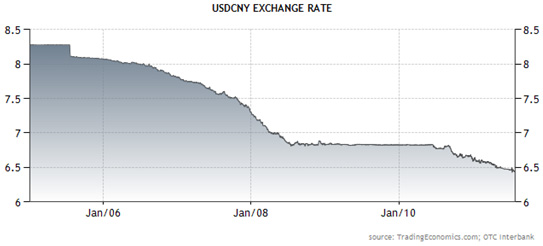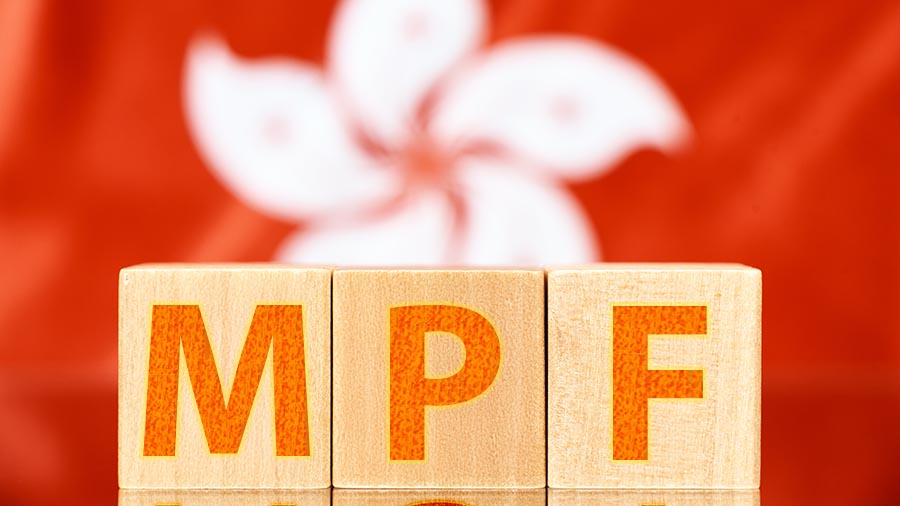RMB Appreciation from China’s Perspective
Guest Commentary by Erwin Hugh
Sept. 12 – The main purpose of U.S. Vice President Joe Biden’s visit to China last month was to put pressure on Beijing to address its undervalued exchange rate and remove import barriers so that the United States can continue an open trade and investment relationship. Chinese and foreign analysts further speculate that political pressure influenced the government’s decision to let its national currency appreciate to a low of RMB6.3925 to US$1 in August, just before Biden visited China on August 17-22.
The appreciation of China’s national currency, the renminbi (RMB), hasn’t had a discernable effect on China’s exports; in July exports rose by a record 20 percent from the same month a year earlier to more than US$175 billion. The trade surplus for the month topped US$31.4 billion, the highest since February 2009. But China’s inflation problems could deepen if, in hopes of strengthening the U.S. economy, the Federal Reserve extends its accommodative monetary policy or launches a third round of quantitative easing.
Accelerating the RMB’s appreciation is considered a reasonable counter-measure to this kind of future inflationary threat, and this is also likely to be more flexible in the future. The Chinese government has been controlling the appreciation of RMB as it still remains one of the primary weapons to fight inflationary pressures. High inflation is a serious issue for the government due to concerns that rapid inflation could produce general unrest and political instability.
Historical Development
Before July 21, 2005, China had maintained a policy of pegging the RMB to the U.S. dollar at an exchange rate of roughly RMB8.28 to US$1. The People’s Bank of China maintained this exchange rate through trading equivalent dollar-denominated assets for newly printed RMB to eliminate excess demand of the currency. As a result, the exchange rate stayed fixed from 1994-2005.
Today, the state of the global economy contrasts with China’s continued growth. China’s balance of payments and its growing foreign exchange reserves are two of the main contributors to the RMB’s appreciation.
The following chart shows the exchange rate between the RMB and U.S. dollar over the last six years:

The Joe Biden Effect
When Biden visited China last month for a four-day visit, discussions mainly focused on the RMB-U.S. dollar currency issues. During his visit, he promised that the U.S. is taking steps to cut budget deficits and must control the growth of entitlements, such as medical care, while expressing great confidence in the strength of the U.S. economy.
Beijing’s biggest fear is a possible third round of bond-buying by the Federal Reserve, known as quantitative easing. Such monetary maneuvers are designed to push down interest rates and boost investment by injecting money into the economy, but Beijing worries that it will boost prices for commodities traded in U.S. dollars, as well as fuel inflation and erode the value of its US$1.2 trillion in Treasury debt.
How does RMB appreciation affect five of the largest industries in China?
Aviation: Positive impact
As a large holder of foreign currency-denominated assets/liabilities, it can be said that the aviation industry may be the biggest beneficiary of RMB appreciation.
Banking: Overall impact is limited
The impact of RMB appreciation is limited on the banking’s five main areas, namely: net assets and liabilities, restructuring currency assets and liabilities, income structure, capital adequacy ratio, as well as indirect effects from the customer.
Petrochemical: Positive impact
Depending on the international market, the petrochemical industry, especially bulk raw materials, will have a direct impact on corporate profits.
Real estate: Push prices
The appreciation of the RMB will help improve the domestic and foreign demand for real estate.
Textile: Negative impact
The negative impact can’t be ignored. The appreciation of the RMB exchange rate has a greater impact on the textile industry, but the leading high margin business, and international manufacturers and retailers with strong bargaining power are subject to a lesser negative impact than the rest of the industry.
Erwin Hugh is a Chinese-American MBA student currently studying for his second MBA in economics at Heriot-Watt University in Edinburgh. He obtained his degree at Cal State University in Northridge, and has just completed an internship with Dezan Shira & Associates in Hong Kong.
- Previous Article Dealing with Initial FIE Setup Costs in China
- Next Article Foreign Investors Blocked from China’s Online Payment Market?





























